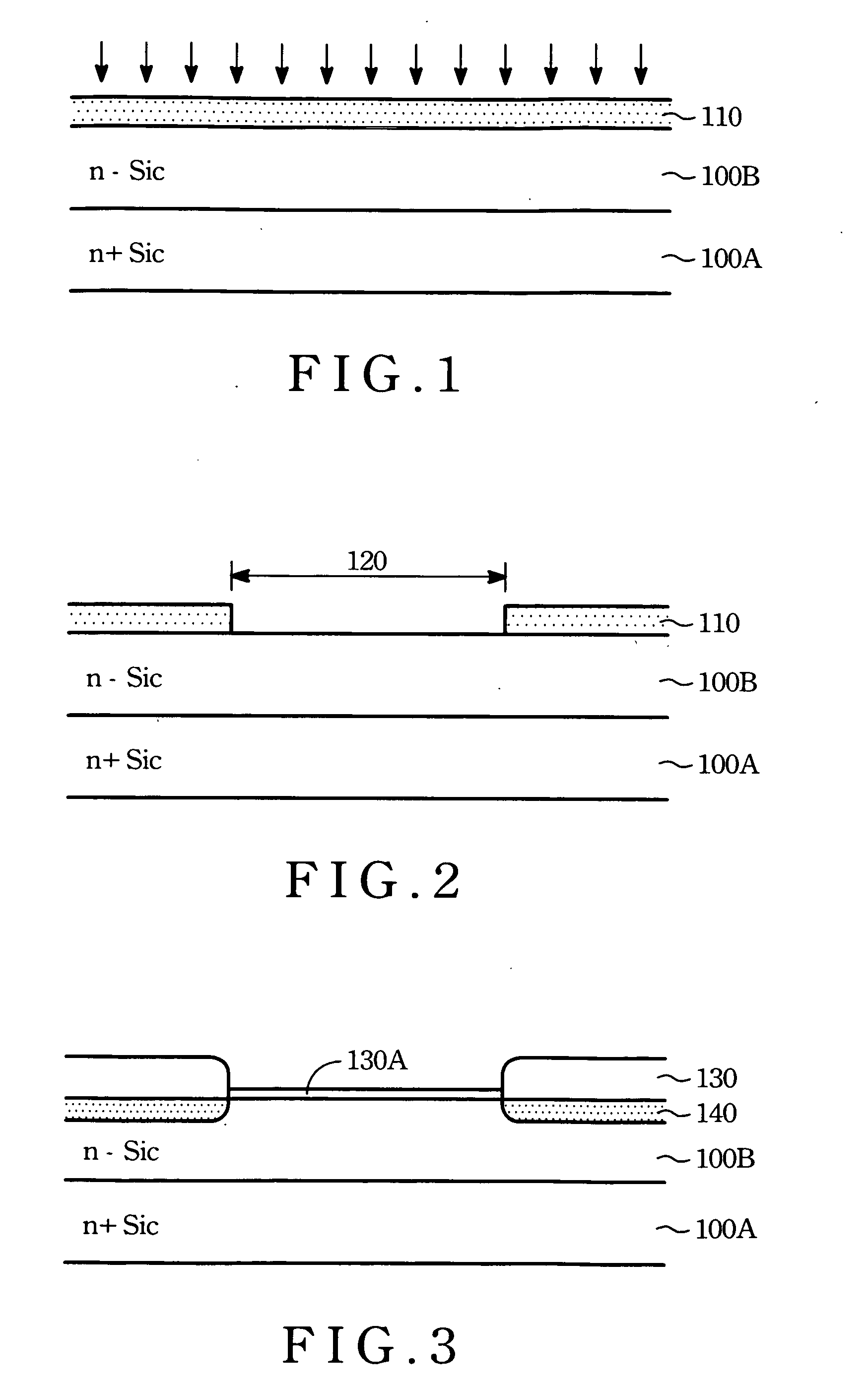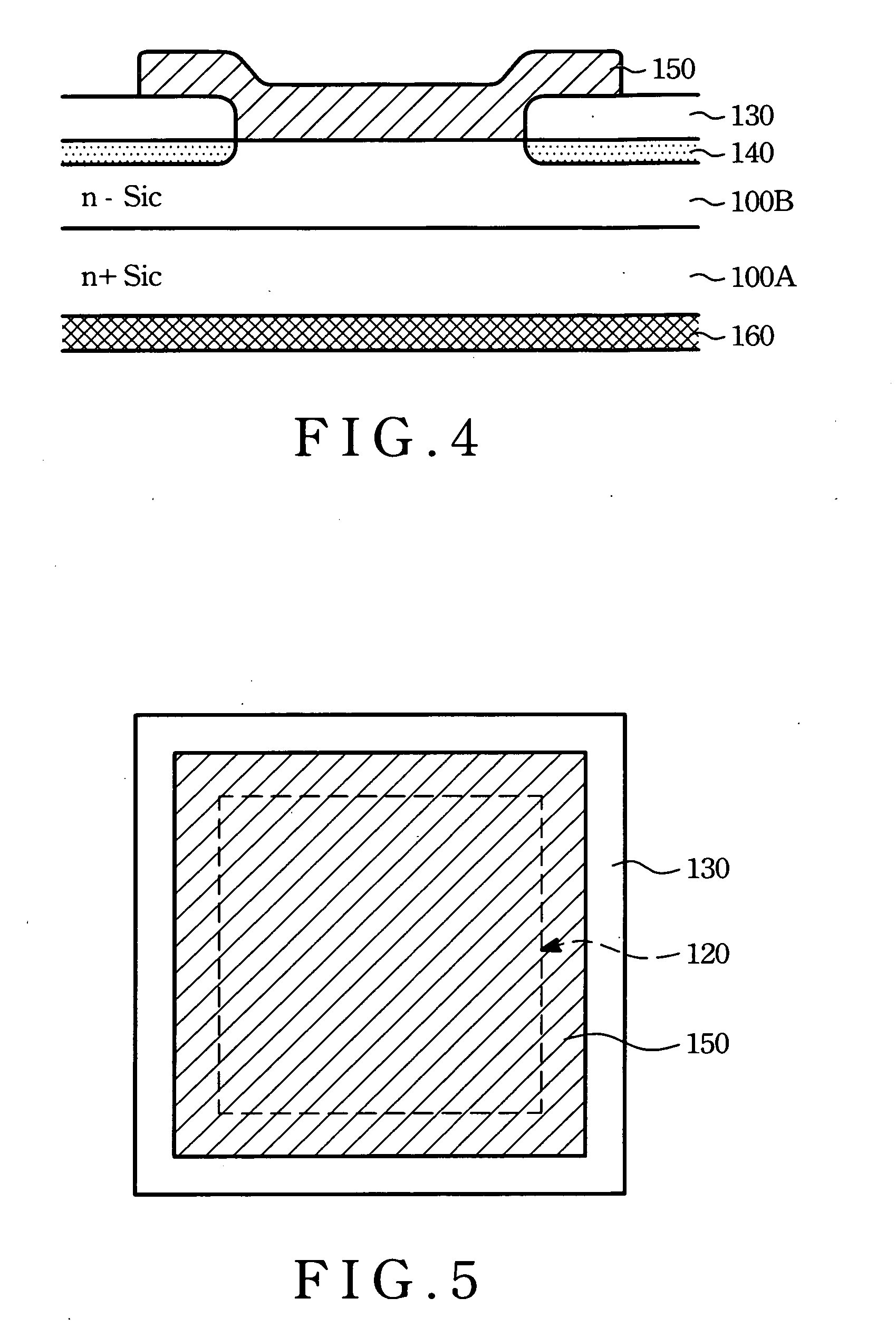Silicon carbide Schottky diode and method of making the same
a silicon carbide and diode technology, applied in the field of semiconductor devices, can solve the problems of poor breakdown voltage of carbide base power transistors, minority lifetime of devices, and poor structure of devices
- Summary
- Abstract
- Description
- Claims
- Application Information
AI Technical Summary
Problems solved by technology
Method used
Image
Examples
Embodiment Construction
[0018]The method of forming Schottky diode according to the present invention is shown in cross-sectional views from FIG. 1 to FIG. 4.
[0019]Referring to FIG. 1, an n-type impurity heavily doped silicon carbide substrate 100A having an n-type impurity doped silicon carbide the silicon carbide epi-layer 100B. The silicon layer can be selected from polycrystalline silicon or amorphous silicon.
[0020]Thereafter, an ion implantation using p-type ion species to dope the silicon layer 110 is performed. The p-type ion species can be B+ or BF2+, aluminum ions, gallium ions, or indium ions.
[0021]Referring to FIG. 2, a patterning process to define an active region 120 is then followed by a lithographic and wet etching or dry etching the silicon layer 110 until the drift layer 100B is exposed. Thereafter, please refer to FIG. 3, a thermal annealing process is conducted to form polyoxide layer 130 by oxidizing the silicon layer 110. During the processes a shallow p-type region 140 is formed into ...
PUM
 Login to View More
Login to View More Abstract
Description
Claims
Application Information
 Login to View More
Login to View More - R&D
- Intellectual Property
- Life Sciences
- Materials
- Tech Scout
- Unparalleled Data Quality
- Higher Quality Content
- 60% Fewer Hallucinations
Browse by: Latest US Patents, China's latest patents, Technical Efficacy Thesaurus, Application Domain, Technology Topic, Popular Technical Reports.
© 2025 PatSnap. All rights reserved.Legal|Privacy policy|Modern Slavery Act Transparency Statement|Sitemap|About US| Contact US: help@patsnap.com



